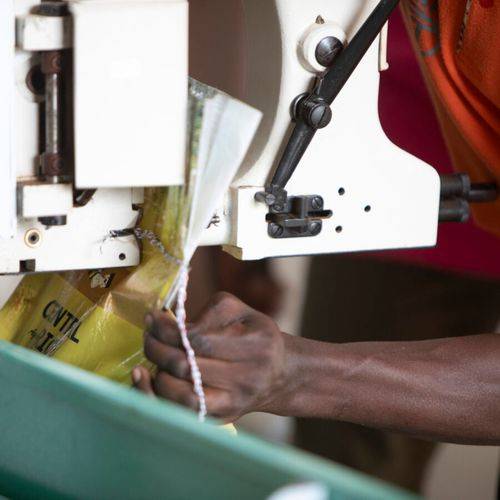Stakeholders Call for Coordinated Support For Ghana's Rice Sector Transformation
The agricultural stakeholders in Ghana have called for coordinated and integrated effort to assist Ghana's rice subsector transformation. The key players including government agencies, private sector actors, researchers, and farmer organizations in a policy forum in Accra emphasized that efforts should be made to speed up local rice production through ongoing investment, infrastructure development, and policy harmonization.
The debate, which was promoted by the Competitive African Rice Initiative (CARI) and the Ministry of Food and Agriculture (MoFA), centered on some of the issues of the sector, such as low productivity, limited access to finance and quality seeds, inferior irrigation systems, and post-harvest loss. Despite growing consumption of rice in Ghana, domestic production addresses only about 50% of needs, thus leaving the country with high reliance on imports.
They underscored the need for value chain transformation towards overall transformation—enabling farmers, millers, marketers, and input suppliers to the same extent. Agronomist Dr. Afua Asantewaa, who was a forum speaker, indicated, "Caring for one part and forgetting the others causes bottlenecks. We have to invest in the entire chain from seed to shelf."
The meeting also called for greater coordination among stakeholders. Various initiatives are currently running independently, here and there duplicating efforts and diluting impacts. A coordinated national plan for rice, backed by public and private stakeholders, was proposed as the way of consolidating interventions and achieving quantifiable progress.
Additionally, stakeholders urged the government to implement policies that would increase the competitiveness of domestic rice, including improved tariff regimes, support for mechanization, and publicity campaigns to promote the consumption of rice produced in Ghana. Improved access to credit and guaranteed market outlets for farmers were also mentioned as key drivers for sector development.
Ghana rice revolution is considered a strategic step towards achieving food self-sufficiency and reducing the country's import bill. With proper facilitation, experts believe that Ghana can be a net exporter of rice in ten years' time.
The call to action concluded with the forming of a multi-stakeholder task force to track development, exchange knowledge, and advocate for policy reform. The stakeholders pointed out that now is the time if Ghana is to realize the full potential of its rice sector and ensure enduring food security.




No comments yet
Be the first to share your thoughts!